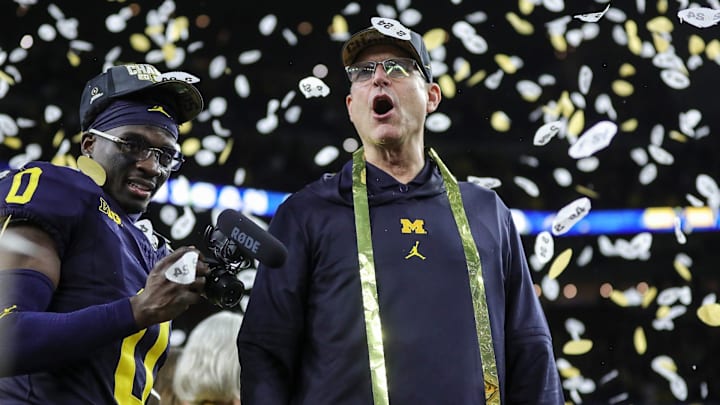As a college football fan I've always hated vacated titles and vacated wins as punishments, because they make utterly no sense. Littering the record book with asterisks is no way to go, because those games happened and we all saw it.
It's weird too to punish current players for the transgressions of coaches who are long gone or cripple a school competitively. Stuff like that just cheapens and undermines quality of play in a whole league, undermines fan interest for years. Unless there are recruiting violations, loss of scholarships penalties don't fit the crime.
Worst of all are postseason bans, because those penalize current and future players for stuff that happened two or more years ago.
Ross Dellenger of CBS Sports reported that Michigan got hit with penalties that could reach as much as $35 million-- four times the previous high levied at Tennessee in 2023 for what the NCAA called "hundreds" of NCAA violations.
NCAA penalties for Michigan:
— Ross Dellenger (@RossDellenger) August 15, 2025
- 4 years probation
- $50K fine + 10% of FB team’s budget
- fine equivalent to loss of 2 postseason $$$ (CFP/bowl)
- fine equivalent to cost of 10% of all FB scholarships
- 25% reduction in FB official visits
- 14-week prohibition on recruiting comms
Financial penalties make sense to me, because those can stick while holding the program accountable. Jim Harbaugh got a 10-year show-cause penalty, but that's meaningless because he's moved on to the NFL and wouldn't have returned to college coaching anyway. He's 61, making $16 million a year to coach the Chargers, and he's already won a title at his alma mater, which they escaped losing.
It's too bad the penalties can't be levied directly at him, in amounts that would matter. It's too bad also that he's not compelled to admit the cheating and answer questions honestly.
In a move that shows utter audacity, Michigan plans to appeal the sanctions due to lack of evidence, after being accused of destroying evidence. The Wolverines should just pay their fines, which seem large enough to be a real deterrent.
In an era of revenue-sharing and NIL when big-time football is all about the money, it makes sense to focus on financial penalties that have real sting. Hollowing out a program competitively for five to ten years would have just set back the entire Big Ten.
What a world we live in that $35 million can be considered a slap on the wrist.
Now that is settled, we can all focus on football.
